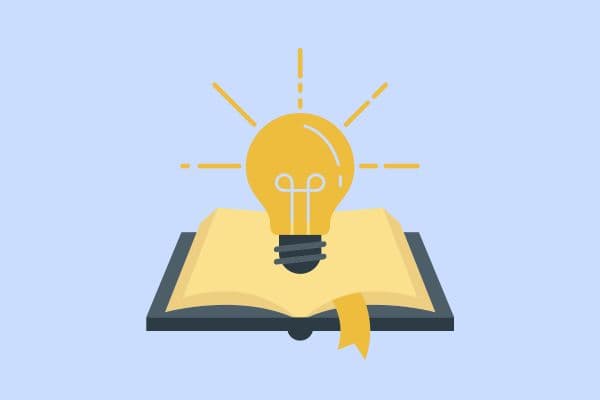Which agency has the authority to issue copyright and related rights assessor’s cards in Vietnam according to Decree 17/2023/ND-CP?
Vietnam: Which agency has the authority to issue copyright and related rights assessor’s card according to Decree 17/2023/ND-CP?
According to the provisions of Article 96 of Decree 17/2023/ND-CP regulating the authority to issue, re-issue and revoke appraiser cards and inspection organization certificates as follows:
Entitlement to issue, re-issue, and revoke assessor’s card, certificate of assessing bodies
State authorities governing copyright and related rights affiliated with the Ministry of Culture, Sports and Tourism are entitled to issue, re-issue, and revoke assessor’s card, certificate of assessing bodies.
Thus, State authorities governing copyright and related rights affiliated with the Ministry of Culture, Sports and Tourism are entitled to issue, re-issue, and revoke assessor’s card, certificate of assessing bodies.

Which agency has the authority to issue copyright and related rights assessor’s cards in Vietnam according to Decree 17/2023/ND-CP?
What are the rules for conducting assessment regarding copyright and related rights in Vietnam?
Pursuant to the provisions in Clause 3, Article 92 of Decree 17/2023/ND-CP as follows:
Assessment regarding copyright and related rights
...
3. Rules for conducting assessment regarding copyright, related rights shall conform to Clause 4 Article 201 of the Law on Intellectual Property.
Accordingly, the reference to Clause 4, Article 201 of the Law on Intellectual Property 2005 is amended by Point b, Clause 78, Article 1 of the Law on amendments to some Articles of the Law on Intellectual Property 2022 as follows:
Assessment regarding copyright and related rights
...
4. Assessment principles:
a) Conformable with law; following assessment procedures;
b) Truthful, accurate, objective, unbiased, timely;
c) Only giving professional verdicts within the assessment scope;
d) Legally responsible for the assessment verdicts;
dd) Assessment costs shall be determined under agreement between the requesting party and the assessing party.
Thus, the assessment of copyright and related rights is carried out according to the 5 principles mentioned above.
What are the exceptional cases that do not infringe copyright?
Pursuant to Article 25 of the Law on Intellectual Property 2005 (amended and supplemented by Clause 7, Article 1 of the Law on amendments to some Articles of the Law on Intellectual Property 2022), it is stipulated as follows:
Copyright exceptions
1. Cases in which a published work may be used without permission or payment of royalties except provision of information about the author and origin of the works:
a) The user makes a copy for the personal purpose of scientific research or study and of a non-commercial nature. This does not apply if the copy is created using a copying device;
b) The user reasonably reproduces part of the work using a copying device for the personal purpose of scientific research or study and of a non-commercial nature.
c) The user reasonably uses the work to as illustration in a lecture, printed matter, performance, audio or video recording, broadcast for teaching purposes. This may include sharing the work in a local network, provided technical measures are taken to make sure that it is only accessible to the teacher and the learners in that session.
d) The user uses the work in public service activities of state agencies;
dd) The user reasonably cites the work without misrepresenting the author's views to comment, introduce or illustrate in the user's own work, to write a news article or periodical, in a broadcast or documentary;
e) The user uses the work for library operation of a non-commercial nature, including reproducing works being stored in the library for preservation, provided these copies are marked as archived copies and have restricted access in accordance with regulations of law on library and archiving; reasonably reproduces part of the work using a copying device serving another person's research or study; reproduces or sends the archived work on the inter-library network, provided the number of concurrent readers do not exceed the number of copies held by these libraries, unless otherwise is permitted by the right owner. This does not apply if the work has been digitally released;
g) The user performs a theatrical work, musical work, dance or work of other art forms during a cultural event of a non-commercial nature;
h) The user photographs, telecasts an fine art, architectural, photographic, or applied art work displayed at a public place for introduction of such work of a non-commercial nature;
i) The user imports copies of another person's work for personal use of a non-commercial nature;
k) The user reproduces the work by publishing on a newspaper or periodical, broadcasts or otherwise publicly present the lecture or speech or talk within an appropriate scope for the purpose of news production, unless the author announces he/she holds the copyright;
l) The user photographs, makes an audio or video recording, or broadcasts an event in which the work is heard or seen for the purpose of news production;
m) A person who has visual impairment or any impairment that render him/her unable to read printed text or read the work in a conventional way (hereinafter referred to as "disabled person) and his/her carer who satisfies the conditions specified by the Government uses the work in accordance with Article 25a of this Law.
2. The use of a work in the manners specified in Clause 1 of this Article must not contradict the normal use of the work and must not cause unreasonable damage to the lawful interests of the author or copyright owner.
3. Regulations on reproduction specified in Clause 1 of this Article do not apply to architectural works, fine art works, computer programs, collection and compilation of works.
4. The Government of Vietnam shall elaborate this Article
Thus, the exceptional cases that do not infringe copyright include the 11 cases mentioned above.
LawNet
